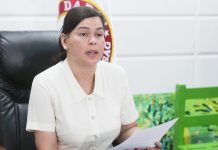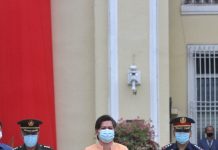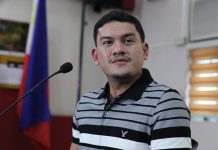Loss of forest cover, pollution, too many human activities and the “business as usual” attitude of the public and public officials are among the major threats to the sustainability of Davao City’s water resource.
These were some of the problems tackled Friday by the UNESCO-funded Davao Water Partnership action planning workshop participated by representatives of government agencies, public and private corporations and civil society groups.
“The Davao Water Partnership is a full spectrum of stakeholders who will collectively work and support the development of an Integrated Water Resource Management system for the eight watersheds overlapping Davao City and the wider areas of Region 11,” said workshop facilitator Declan Hearne.
Hearne urged the participants to depart from the “business-as-usual” mindset to a highly pro-active stance to ensure high-level outcomes in the management of the city’s water resource.
“The water problem “tubig” (too big),” quipped Director Romy Falcon of the Department of Agriculture-Region 11 citing the economic needs of people versus the need to restore and conserve the city’s uplands particularly areas declared as protected non-tillage areas by the Watershed Code of Davao City.
Simeon Marfori, the immediate past president of the Davao City Chamber of Commerce and Industry, urged participants to make use of technology to cope with the need to enforce, regulate and implement policies as he noted the overlapping functions of government agencies.
Marfori also called on stakeholders to assert their political will and for government decision-makers to change their compliance mindset and be more active as “their budget does not reflect (such) commitment.”
A workshop group under Cora Baylon, president of the People Collaborating for Environmental and Economic Management in Davao (PCEEM Davao) recommended that the functions of the National Water Resources Council (NWRC) be devolved to the city government as “said agency does not have a presence in the region.”
NWRC has the sole authority to regulate the extraction of water. Their lack of presence in the region has resulted in the virtually unregulated trading of Davao City’s water to other areas in the region.
In the same workshop, Stephen A. Antig, executive director of the Pilipino Banana Growers and Exporters Association (PBGEA) welcomed the goup’s tenet that “decisions must be science-based” noting that an NGO has been bashing the industry as not too environment-friendly on the basis of anecdotal and often baseless allegations.
Antig disclosed that the PBGEA is adopting a two-hectare site in one of the city’s watershed areas for reforestration in addition to the initiatives of their member-companies such as tree-planting, siltation-control and water-conservation projects in said areas. [ER Lamsen Jnr.]






